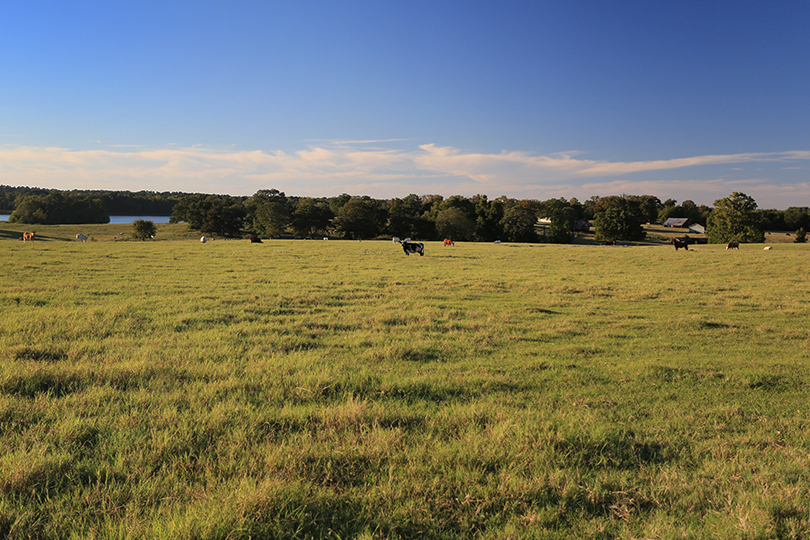By Jennifer Whitlock
Field Editor
Foreign ownership of American agricultural land doubled from 2009-2019, according to U.S. Department of Agriculture (USDA) data.
Since 2015, foreign holdings have increased an average of nearly 2.3 million acres annually, with nearly 35.2 million acres across the U.S. held by foreign owners.
That has American farmers, ranchers and legislators increasingly concerned.
Congressmen Ronny Jackson and Filemon Vela, both of whom represent Texas, introduced the Foreign Adversary Risk Management (FARM) Act to combat foreign interference in the agricultural supply chain.
“Foreign interference in America’s agriculture supply chain poses a serious national security threat, especially given that the worst proponent is the Chinese Communist Party. I represent the top-rated agriculture district in Texas, so protecting this vital industry and its overarching supply chains will always be among my top priorities in Congress,” Jackson said. “Our adversaries are working overtime to undermine American interests, and the FARM Act will be an important step to secure America’s food supply by identifying and responding to inappropriate interference.”
The Lone Star State’s largest farm and ranch organization, Texas Farm Bureau (TFB), supports the FARM Act.
“As Texas has experienced a surge of foreign investors buying agricultural land, it is critical that proper oversight is provided to ensure our national security. We are pleased this bill accomplishes this goal, while in turn protecting private property rights of landowners who wish to sell their property,” TFB President Russell Boening said. “We appreciate these congressional leaders for their steadfast leadership on this issue, and we look forward to working with them to secure passage of this bipartisan legislation.”
Through the FARM Act, the legislators seek to modernize the Committee on Foreign Investment in the U.S. (CFIUS).
CFIUS, created in 1950, is an interagency federal committee which reviews transactions involving foreign investment in U.S. businesses and real estate transactions. The committee is chaired by the Secretary of the Treasury and contains members from several other federal agencies including the Departments of Defense and Homeland Security. The Director of National Intelligence and Secretary of Labor are non-voting, ex-officio members of CFIUS.
Currently, if CFIUS determines a transaction presents national security risks, the committee may enter into an agreement with or impose conditions on parties to mitigate those risks, suspend the transaction or refer the case to the president for a decision.
Under the new bill, CFIUS would be required to monitor foreign investment into agriculture more closely and add the Secretary of Agriculture as a member of the committee. The FARM Act also would require the USDA and Government Accountability Office to investigate and report to Congress on the national security implications of foreign investment into American agriculture.
Foreign ownership of agricultural land could easily become an issue of food security, Vela noted.
During the COVID-19 pandemic, Americans saw food supply chains stretched and weakened. In the future, foreign agricultural landowners could use those tensions against the U.S. if allowed to purchase more land unchecked, according to the lawmakers.
“Our food systems are vital to our national security, and we must be vigilant to preserve their integrity. As we saw following the pandemic, food processing plants were forced to close and shipping routes for agricultural inputs were delayed. It disrupted the supply chains farmers use to get products from the farm to consumers, which contributed to declining food security in the United States,” Vela said in a statement. “This bill increases federal scrutiny of foreign investments in U.S. industry that could undermine our agricultural supply chains by adding the Secretary of Agriculture to CFIUS and designating agricultural supply chains as key infrastructure under the CFIUS review process.”
The move comes in the wake of criticism of foreign-owned agribusinesses as Brazilian-owned JBS SA received USDA assistance through “trade aid” programs. Chinese-owned Smithfield Foods also would have received aid from USDA, but the company voluntarily requested to terminate a contract before that money was received.
A 2018 report by USDA’s Economic Research Service said China’s need for agricultural resources and technology is behind Chinese investment in foreign agriculture and food sectors.
In less than a decade, China’s agricultural investments abroad grew more than tenfold.
Now, China holds about 192,000 acres, or $1.9 billion worth of U.S. farmland, according to the latest USDA Farm Service Agency (FSA) foreign agricultural land holdings report.
Forestland accounted for almost half of all foreign-held acreage, with 25% going to cropland and another 24% classified as “other agricultural land,” comprised of pastures, rangeland and the like. The remaining 2% of foreign-owned is made up of non-agricultural land holdings.
The top country holding American agricultural land is Canada, with 10.5 million acres or 29% of all privately-held land in the U.S.
USDA attributes most purchases of agricultural land by foreign countries for use as wind farms.
Texas has the largest amount of foreign-held agricultural land in the U.S. at over 4.4 million acres. Maine is the second largest at 3.3 million acres, and Alabama comes in third at 1.8 million acres. More than 500,000 acres of Texas farmland were purchased by foreign investors in 2019 alone.


Ya. That will get traction with this Congress.
Please continue to monitor and fight foreign countries whose intentions are not in the best interests of the United States.
It seems we are piecing out our country to other countries. I am concerned because I remember Kruschev’s quote “We Will take America without a shot. We do not have to invade the U.S. We will destroy you from within…” but in the Russians place we have China, South American countries and Canada.
NO land sales to a foreign country or a foreign individual that is not a U S citizen PERIOD.